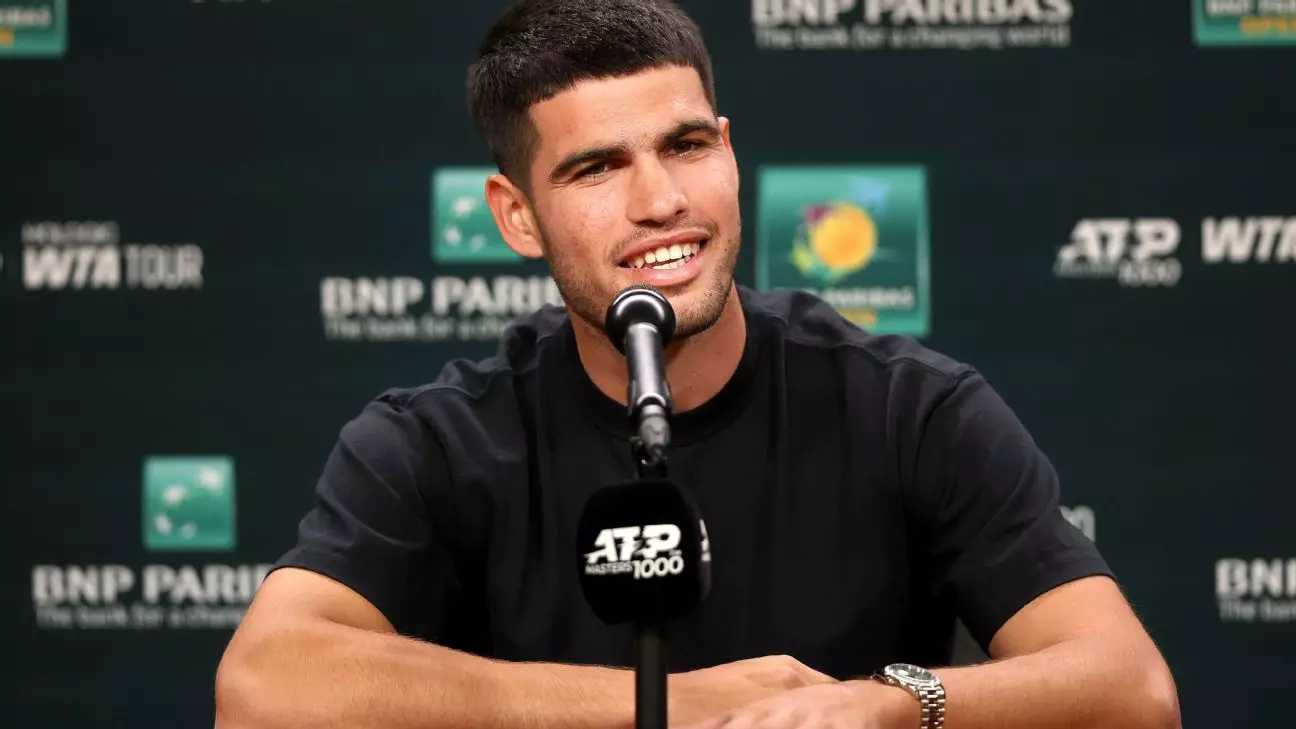In the world of competitive tennis, the emergence of Carlos Alcaraz is a breath of fresh air, representing a fusion of talent and enthusiasm often seen in younger athletes. As a four-time Grand Slam champion, Alcaraz exemplifies not just skill on the court but also an evolving outlook on the sport’s dynamics, including its underlying politics. His recent remarks regarding the class-action lawsuit spearheaded by the Professional Tennis Players’ Association (PTPA) reveal a nuanced perspective that is both enlightening and concerning.
The Quiet Storm of Change
Alcaraz’s disentanglement from supporting the lawsuit against various tennis governing bodies highlights not only his individuality but also the complexities of athletic advocacy. He openly admitted, “Honestly, it was surprising for me, because nobody told me (anything) about it.” This admission reflects a broader issue within professional sports: the concerning disconnect between players and the organizations that represent them. While the PTPA claims to have assembled the support of over 250 athletes, Alcaraz’s confusion indicates that more transparency and dialogue are needed to unify the players behind a common cause.
Moreover, Alcaraz’s recorded quotes from previous press conferences serve as a double-edged sword. He is showcased within the legal filing, which paints a picture of a divided player landscape. While he is critical of the demanding tournament schedules, his stance is not one of outright rebellion; rather, he expresses a desire for careful consideration of player wellness. Indeed, his notion that “they are going to kill us in some way” exposes the frailty of athletes under pressure but also the potential for progress when changes are thoughtfully navigated.
In the Crosshairs of Progress
Navigating the complexities of the sport, Alcaraz shines a light on an essential discussion: what does it mean to truly advocate for one’s profession while also preserving the essence and spirit of the game? He noted a division among players about the calendar, with some eager for more play and others famished for respite. As athletes in a physically demanding sport, the balance between the love for competition and the need for recovery is delicate indeed.
As Alcaraz prepares for the Miami Open, he steps onto the court not only as a contender but also as a symbol of a generation that seeks to redefine the terms of engagement in professional sports. His reservations about the ongoing litigation highlight the potential pitfalls of unchecked ambition within sports management and representation. This young athlete’s perspective signifies a critical juncture where tradition must harmoniously coexist with evolution.
Towards a Collective Future
Ultimately, Alcaraz’s reluctance to fully back the PTPA’s efforts poses challenging questions about representation and the future of tennis. While athletes are increasingly vocal about their working conditions, it remains vital for them to align their goals in a way that does not alienate their standing bodies. Sharing insight on player welfare while not fully endorsing a contentious lawsuit opens up avenues for dialogue, yet it also calls for introspection among governing bodies to foster a collaborative atmosphere.
In this rapidly changing landscape, Alcaraz is not only carving a niche as an elite player but also nudging the sport toward critical conversations about athlete representation and rights. Whether this leads to a more equitable environment for current and future players remains to be seen, but the dialogue initiated by athletes like him is undeniably a step in the right direction.

